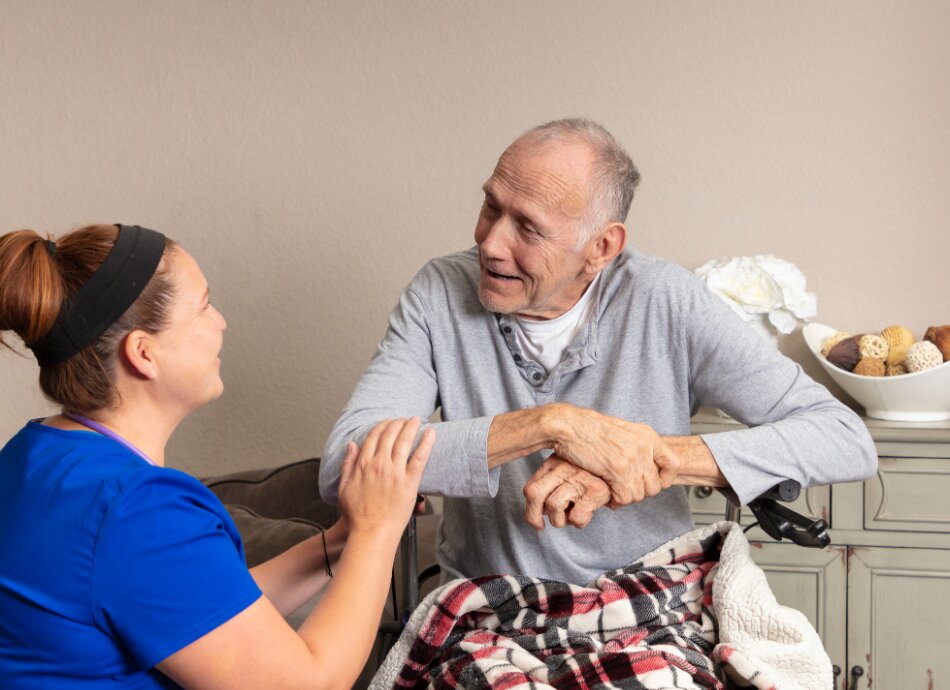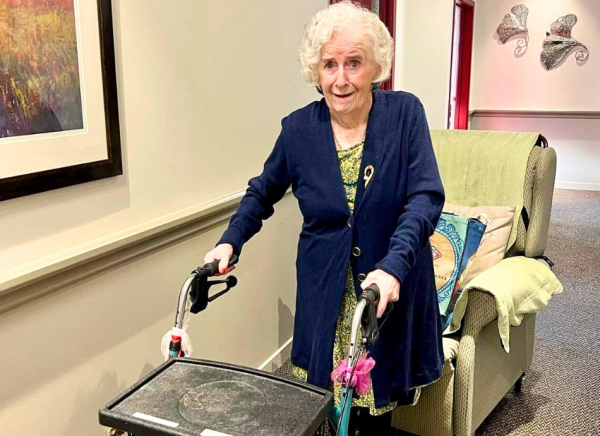You can now add Healthify as a preferred source on Google. Click here to see us when you search Google.
Health care assistant (HCA)
Key points about health care assistants (HCAs)
- Health care assistants are a key part of the healthcare team.
- They are non-health professionals who work under the direction of regulated healthcare providers, often nurses.
- Health care assistants work within primary care teams.
- This section outlines some of their roles, what they can offer and training opportunities available in Aotearoa New Zealand.

Health care assistants (HCAs) are non-health professionals or support staff who work collaboratively within a healthcare team to meet the needs of the people they see. Health care assistants are not regulated and must work under the direction and delegation of a registered health professional.
The health care assistant role can be wide ranging and complex. They often work with people in the community and with people in residential care. This may involve assisting people with personal cares, such as:
- washing and dressing
- assistance with walking
- supporting somebody's comfort and wellbeing
- preparation of meals
- housework.
It may also involve assisting other healthcare providers. Care should be provided in a culturally appropriate way.
Image credit: Healthify He Puna Waiora
Common and advanced roles for health care assistants
Common roles for health care assistants include:
- personal care support
- meal preparation
- housework
- taking people shopping or to appointments
- monitoring vital signs
- acting as a chaperone
- patient recalls
- providing culturally appropriate care and support
- Cold Chain management (keeping vaccines at the right temperature)
- stock and supplies management
- documentation and liaison with other healthcare providers.
Advanced roles for health care assistants include:
- working as a health coach
- providing nutrition and basic education and support
- providing behaviour change support
- care coordination and supporting people to follow through with their care plan
- quality improvement tasks
- blood test collection
- health promotion activities.
There's a workforce shortage of healthcare personnel, including health care assistants, within Aotearoa New Zealand. This has led to changes in care models and expanded roles for health care assistants.
Health care assistants now do some of the tasks previously carried out by registered nurses (RNs), under their direction. This enables nurses and other healthcare providers to be available for other tasks.
The benefits of including a health care assistant as part of the healthcare team include:
- better use of limited resources within the practice
- freeing nurses for more specialised tasks
- shorter waiting times for patients
- enabling doctors, such as GPs, and nurse practitioners to see more patients and pursue medical interests including minor surgery and speciality clinics.
Training for HCAs can either be undertaken as an apprenticeship (earn and learn) or by doing an accredited training programme. If you're already working as a health care assistant, training may be supported through your place of work. Approximately 25% of health care assistants study for Health and Wellbeing qualifications while they're working. Training programmes for New Zealand certificates level 2 to 4 in Health and Wellbeing can be completed. This training can be part-time or full-time depending on the educational provider. Study options and costs vary. Scholarships are available from Health Workforce New Zealand for eligible Māori and Pacific applicants.
Education providers
New Zealand Certificate in Health and Wellbeing (Social and Community Services) (Level 4)(external link)
New Zealand Certificate in Health and Wellbeing (Level 3)(external link)
New Zealand Certificate in Health and Wellbeing (Level 2)(external link)
The following websites provide a range of resources that may be useful. Note some are from the UK and the US so some information may be different.
Health care assistants(external link) Health New Zealand | Te Whatu Ora
The lay person(external link) Improving Primary Care, US, 2020
First steps for health care assistants(external link) Royal College of Nursing, UK (Online learning)
References
- Estabrooks C, Squires J, Carleton, H, et al. Who is looking after Mom and Dad? Unregulated workers in Canadian long-term care homes(external link) Can J Aging 2015;34(1),47–59
- Ravenswood K, Douglas J, Ewertowska T. The New Zealand Care Workforce Survey 2019(external link) Report 2021, Auckland, NZ
- Health workforce plan 2023–2024(external link) Health New Zealand | Te Whatu Ora, NZ, 2023
Credits: Healthify editorial team. Healthify is brought to you by Health Navigator Charitable Trust.
Reviewed by: Lizzy Guest, Senior Academic Staff member in Health, Toi Ohomai | Te Pukenga
Last reviewed:






